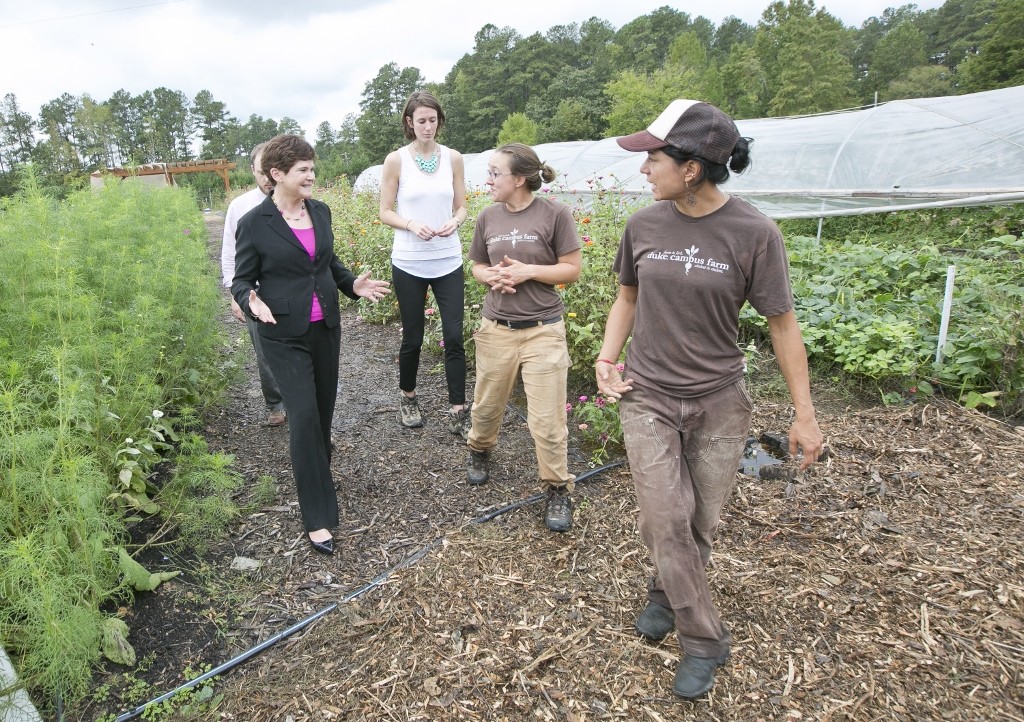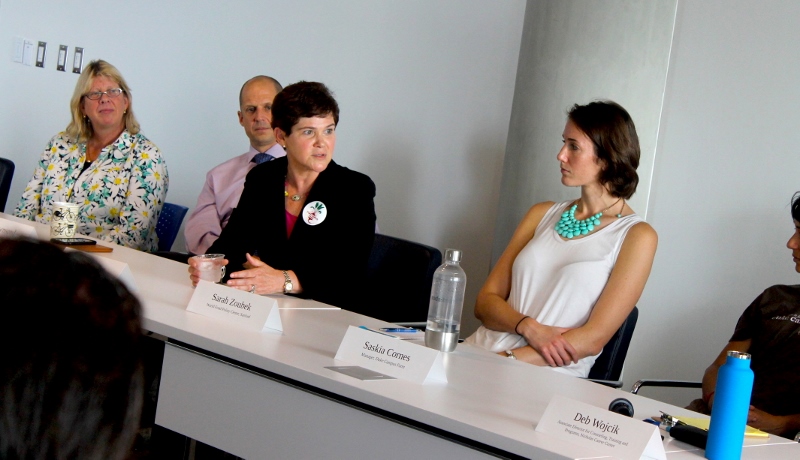On Wednesday, September 30th, Duke University had the privilege of welcoming United States Department of Agriculture Deputy Secretary Krysta Harden to campus.
Secretary Harden first visited the Duke Campus Farm, and commended Duke on maintaining the one-acre facility, especially when many students have never laid eyes on a true farm before.
In a roundtable discussion with students and faculty hosted by the Nicholas School of the Environment and the Sanford School of Public Policy, Secretary Harden stressed the importance of education in sustaining this country’s agriculture. She noted that students play a crucial role in maintaining farms and agriculture in the US, also expressing confidence in the millennials’ ability to meet the demands of the future.

Photo by Megan Mendenhall
“[Your generation is] going to have to have the answers,” she said, to challenges such as the changing climate, land development and population increase. Secretary Harden also underscored the need to help farmers and spread awareness about food production in the US. “Our food comes from very very hard working people trying to make a living, and we need to think about who’s farming now and how to encourage other people to help.”
She noted that only one percent of the country’s population feeds the remaining ninety-nine percent, and recognized the pressures and difficulties associated with preserving farmland for the future. She lauded the efforts of the American Farmland Trust and other programs that work to protect the land dedicated to producing food that feeds not only the US, but people around the world as well.
Secretary Harden also directed attention to the need for a more collaborative, interdisciplinary approach to agriculture. When asked about how graduate students in environmental schools integrate into her vision for the future, she relays that “technology and science are best friends to farmers. They need the research, they need the info.” She also emphasizes that farmers have a myriad of knowledge and experience to offer as well. “Farmers are the best environmentalists in the world,” she said. “Instead of worrying about [the environment] when it’s convenient, they have to worry about it every day.”
Harden encouraged students to think about how to take their academics and skills acquired in school and make them useful for the agricultural sector. She pointed out that practicality is essential for people who will use new agricultural technologies or strategies every day.

Photo by Carol Jackson
Additionally, Secretary Harden commented briefly on the obesity epidemic in the United States. To accentuate the gravity of the situation, Harden mentioned the insufficient number of healthy, eligible military recruits as a “sad statement” of the state of nutrition in the country, and stated that the problem is not only about the food that people eat, but also American culture. Once again, she affirmed that education is essential to improving the health of successive generations. Harden said that educating children can truly impact the future of this country’s health, and mentioned initiatives such as the push for healthier school lunches and nutrition education in elementary schools as significant steps to fighting obesity.
Rounding out the session, Secretary Harden delivered career advice to an audience largely made up of graduate students. She discussed the need for people with diverse skill sets and backgrounds in agribusiness, especially those with experience in economics and business. Above all else, Secretary Harden noted that “an excitement about the position” is the most important thing to get involved in the agricultural sector. Harden expressed her love for her job, saying “I think about it [all the time], I’m excited about it, I dream about it.”
“No matter what you do, love it. Be the first person at work,” she said. “Do what you love, and love what you do.”


